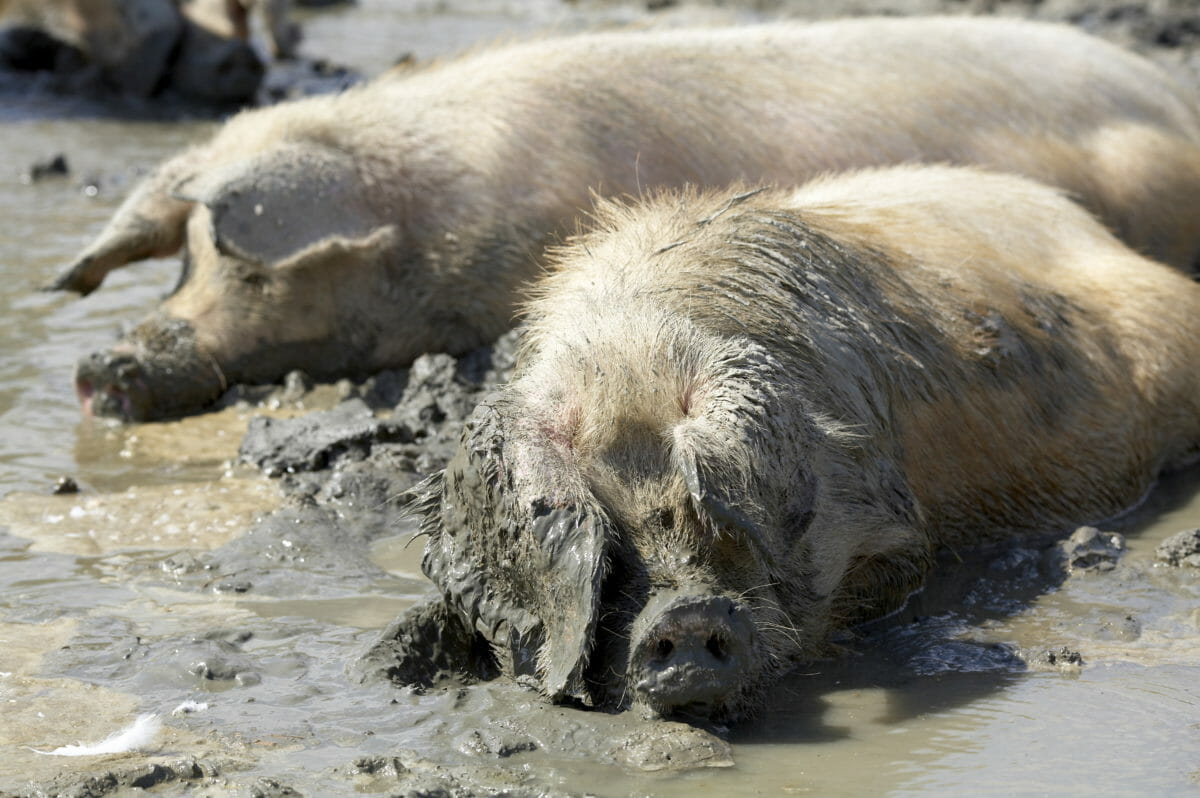"Don't have a cow" has been around for far longer than Bart Simpson.

Sure, we all know why “separate the wheat from the chaff” means dividing bad from good, but some of their other finds are fascinating. For example, did you know that examining an animal’s teeth could be considered rude?
Find a few favorites below. For the full list, head to Merriam-Webster’s original post.
[mf_h2 align=”left” transform=”uppercase”]Have a cow[/mf_h2]
Definition: To become very angry, upset, etc.
The dictionary assures us that this phrase predates Bart Simpson. It’s been in use since the mid-1900s and actually originates from a British expression, “to have kittens,” which indicated nervousness more than anger. Maybe cows are more rageful than kittens? Hmm.
[mf_h2 align=”left” transform=”uppercase”]Don’t look a gift horse in the mouth[/mf_h2]
Definition: To look in a critical way at something that has been given to one
The first known use of this idiom was in 1549, based on the idea that looking closely at a horse’s teeth could be considered rude, since that would reveal its age. Probably ruder with a person, but you get the idea.
[mf_h2 align=”left” transform=”uppercase”]When pigs fly[/mf_h2]
Definition: Used to say that one thinks that something will never happen
Why this means what it does seems obvious – your pig will literally never fly – but why pigs, specifically? Why not any other animal flightless animal? The dictionary doesn’t get to the bottom of this, unfortunately, but does find that this idiom used to be quite specific. In writings from 1581, the phrase was “when pigs fly with their tails forward.” We guess technically that would be even less likely than pigs flying in general, but it seems like an unnecessary add.
[mf_h2 align=”left” transform=”uppercase”]Beat a dead horse[/mf_h2]
Definition: To keep talking about a subject that has already been discussed or decided
“There is no linguistic evidence, we are happy to report, suggesting that this idiom has any sort of literal roots,” Merriam-Webster writes. Phew. This one remains a mystery, though inexplicable dead horse idioms were once a thing, apparently: Also for unbeknownst reasons, there are multiple examples from the 17th century discussing flatulence via dead equine. For your enjoyment, now-odd-seeming 1600s spelling included:
“One may gett a fart from a dead horse, as soon as a farthing from him.” – James Howell, Paroimiographia Proverbs, 1659
“As free as a dead horse is of farts.” – John Ray, A Collection of English Proverbs, 1678
[mf_h2 align=”left” transform=”uppercase”]Like a chicken with its head cut off[/mf_h2]
Definition: Excited and confused
This story we published in 2014 will tell you the tale of Mike the Headless Chicken, who lived for 18 months after his decapitation. That, of course, is not the norm; this saying comes from a more common result of a chicken beheading – if you aim the hatchet too high, the brain will be sliced in a way that the bird can still run around for a few seconds after the kill. In the 1800s, a writer for the New Orleans Times-Picayune compared a person hopping around excitedly to a floundering headless bird, and an idiom was born.
[mf_h2 align=”left” transform=”uppercase”]Talk the hind leg off a donkey[/mf_h2]
Definition: To talk for a long time
You can basically use any animal you want with this one, including a horse (though not a dead one!). Some usages discovered by the dictionary sleuths:
“There is a common saying that some people will ‘talk a dog’s hind leg off.’” – The London Journal (London, Eng.), 12 Jul. 1845
“He would not weary them like his friend old Tower, who would talk a horse’s leg off – (renewed laughter) – but would simply second the amendment.” – The Exeter Standard (Colchester, Eng.), 6 Dec. 1850
[mf_h2 align=”left” transform=”uppercase”]A hard row to hoe[/mf_h2]
Definition: Something that is difficult to do or deal with
Again, pretty obvious to anyone who has farmed, referring to hoeing a row of crops. But the clueless among us incorrectly say this as “a hard road to hoe,” which stuck after a satirist in 1840 misused the phrase when trying to mock Martin Van Buren. Though, a road would be much harder to hoe than a row…
[mf_h2 align=”left” transform=”uppercase”]Happy as a pig in the mud[/mf_h2]
Definition: Very happy
Another day, another pig idiom. What we love about this one is how many variations on “mud” there have been over the years, based on all the things that make pigs happy. Sub in “muck,” “puddle” or even “clover” and this phrase means the same thing. Pigs, always happy! We should all learn from them.
Merriam-Webster also put together this fun quiz of farm idioms, if you’re up for it. Good luck!
This is really interesting. Learning a lot